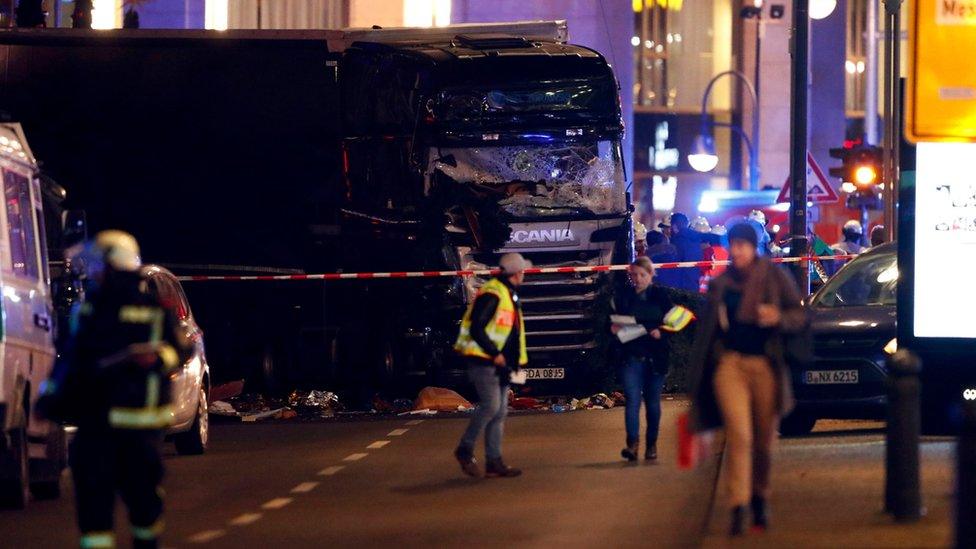Berlin lorry attack: 'Gross mistakes' made by police
- Published

Anis Amri drove a truck into a crowded market in central Berlin on 19 December 2016
An investigation into last year's deadly attack on a Christmas market in Berlin has revealed "gross mistakes" by German police and security services.
The report commissioned by Berlin's state senate says police missed several chances to arrest and deport Anis Amri, a Tunisian behind the attack.
It says Amri - who was a known Islamist threat - could have been held on drugs charges before the 19 December attack.
He drove a lorry into the crowded market, killing 12 people.
Dozens of people were injured at Breitscheidplatz Christmas market in central Berlin. Amri was shot and killed in Italy four days after the attack.
Presenting the report on Thursday, former prosecutor Bruno Jost said that "gross mistakes were made that should never have happened".
He said that although Berlin police had been earlier tipped that Amri was a potentially violent Islamist, surveillance was only carried on weekdays.
Surveillance was dropped altogether after several weeks, with police believing that the 24-year-old Tunisian national was a small-time drug dealer.

Anis Amri used a number of different aliases
Mr Jost added that Amri could have been held on drugs charges, but miscommunications with the prosecution service allowed him to slip through the net.
"There is no mathematical certainty that Amri could have been arrested and detained, but if everything had gone well, then there would have been a real chance of detaining him and at least to get him remanded in custody for a while.
"Amri was one of the suspects who was discussed at the Joint Terrorism Response Centre more often and more extensively than practically anybody else. And you can't then act as if you have just arrested a petty thief," Mr Jost said.
The investigation also found that police may have doctored their records, allegedly to cover up failings.
German police is yet to publicly comment on the investigation's findings.